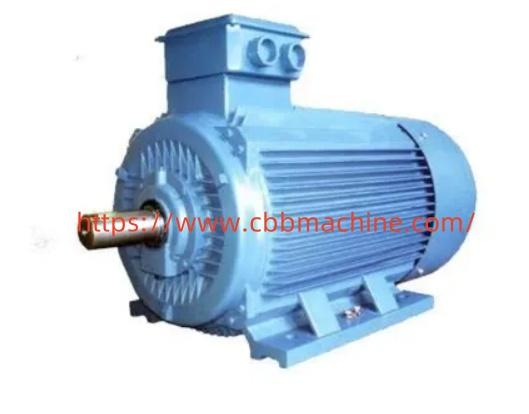Electric Torque Motor Benefits Explained by CBBMachine Experts

In modern industrial automation systems, energy efficiency and precision control are essential, and it is within this context that the Electric Torque Motor becomes a core component across various sectors. Known for its ability to provide high torque at low speeds without the need for additional gearboxes, this specialized motor is often chosen for its smooth, controlled movement and responsiveness in demanding applications.
These motors operate based on direct drive technology, which means they are connected directly to the load. This eliminates mechanical losses that typically arise in traditional motor-gearbox assemblies, making operations quieter and more efficient. Their design also supports consistent torque output over a wide range of speeds, offering significant flexibility in motion control.
Electric torque motors are widely utilized in machine tools, robotics, packaging systems, and printing equipment. In particular, their usage in rotary tables and indexing applications ensures smooth positioning and repeatable motion, essential in high-precision industries. Their high performance and low maintenance requirements make them a preferred solution for manufacturers looking to streamline mechanical complexity without compromising reliability.
One key benefit lies in thermal efficiency. Due to their robust construction, electric torque motors can dissipate heat efficiently, allowing for continuous duty cycles without overheating. This reliability, coupled with the absence of backlash and vibration, enhances system accuracy—an advantage particularly important in semiconductor manufacturing or CNC applications where any deviation can lead to costly errors.
Furthermore, from a sustainability perspective, these motors align well with energy-saving goals. By reducing frictional losses and eliminating unnecessary mechanical components, they consume less power while delivering the same or higher output, contributing to greener operations.
Installation is relatively straightforward compared to conventional motor systems. With fewer components involved, downtime is minimized, and the reduced need for periodic maintenance improves total cost of ownership over the product lifecycle. Whether integrated vertically or horizontally, electric torque motors are adaptable to multiple system layouts, making them an ideal fit for both compact and large-scale equipment.
Designers and engineers seeking compact, responsive, and energy-efficient drive systems are increasingly turning to torque motor technology. As digital transformation continues to shape the industrial landscape, these motors provide a future-ready solution with proven mechanical advantages.
To understand the engineering and industry-specific use cases in more depth, visit https://www.cbbmachine.com/news/industry-news/electric-torque-motor-all-you-need-to-know-features-uses-and-more.html
- Creative Multimedia
- Education & Innovation
- Business & Technology
- Sustainability & Ethics
- App & IT Development
- Community & Culture
- Thought Leadership
- Event
- AI & Robotics
- Crafts
- Ταινίες
- Fitness
- Free Pecks
- Παιχνίδια
- Tutorials
- Health
- Music
- Networking
- άλλο
- Business
- Religion
- Shops
- Sports
- Wellbeing


